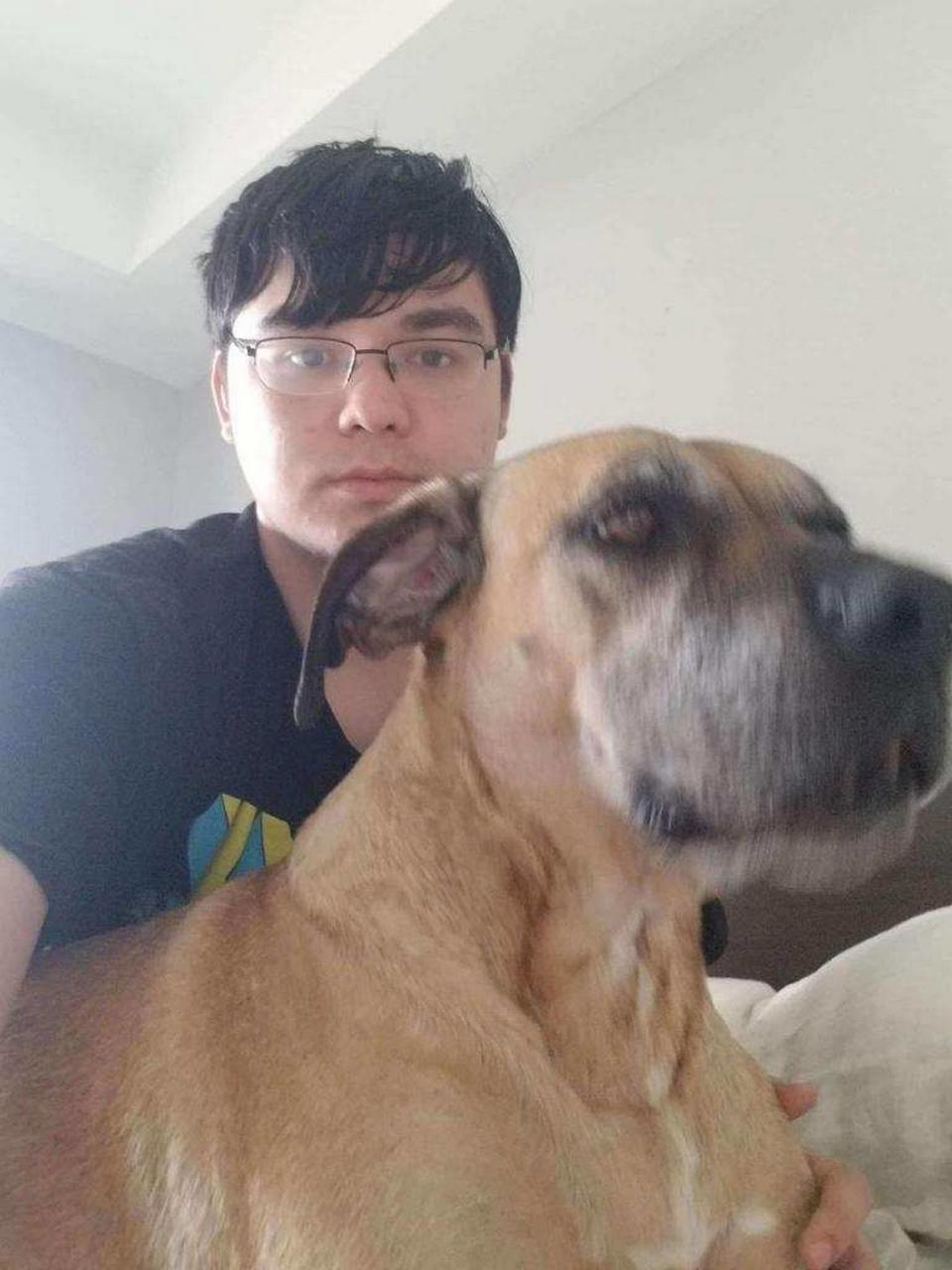Johnson County DA will not charge police officer who killed man in mental health crisis
Prosecutors will not file charges against an Olathe police officer who shot and killed a 27-year-old man at his home during a mental health crisis, according to Johnson County District Attorney Steve Howe.
At a news conference Wednesday, Howe said an investigation into the Dec. 31 shooting of Brandon Lynch in the front hallway of his home showed the officer fired three times, hitting Lynch each time. A butterfly knife and a stun gun were found near Lynch’s body.
Howe said the shooting was justified under Kansas law.
“It is my determination that the officer properly used deadly force in this incident and will not be facing charges,” he said.
Lynch’s family and their attorneys at the Cannezzaro Marvel law firm said they were “immensely disappointed” in Howe’s decision.
“We disagree with the determination that the officer’s use of deadly force was reasonable and will continue to pursue justice on his behalf,” they said in a statement.
Body camera footage shows Lynch telling the officers to shoot him.
Lynch had a history of mental health problems and was well-known to Olathe police, his mother Maria Varnas previously told The Star.
He had suffered from paranoid schizophrenia and police had been called to her home on multiple occasions. Officers knew how to handle him, Varnas said — stand back, talk him down, arrest him calmly and get him the help he needed, including hospitalization.
On New Year’s Eve, his sister called police for help. Police said he approached them with an “edged weapon,” and an officer fired his gun.
Lynch was pronounced dead inside the home.
Johnson County’s Officer Involved Critical Incident Investigative Team investigated the shooting.

New Year’s Eve shooting
Around 11:10 p.m., Melissa Lynch, Brandon Lynch’s sister, called 911 and told a dispatcher that her brother had attacked her and she was bleeding in her mouth. She declined an ambulance and reported that he could have a knife and that he kept a Taser.
Two Olathe Police Department officers responded.
Body camera footage played during the news conference showed the officers walking downstairs to his bedroom. Brandon Lynch told them to “get out.” He slammed the door and the first officer reopened it. The officer saw Lynch holding a stun gun and told him he was under arrest.
“For what? Cleaning?” Lynch replied.
The officer stepped further into the room and saw Lynch had a knife in his hand and ordered him to drop it.
Lynch did not drop the knife and the two officers backed out of the room.
Lynch followed, walking up the stairs into the living room. The two officers were near the front doorway and the second officer fired his Taser, but it did not have an effect on Lynch, the district attorney’s office said.
Lynch paced behind some furniture and the first officer continued ordering him to drop the weapon.
“You better shoot me in the head right now, you punk,” Lynch said.
The second officer used his Taser for a second time, but again it failed to subdue Lynch.
The first officer said if Lynch came toward him, he would shoot.
According to the district attorney’s office, Lynch moved from behind the furniture and “raised his left hand (which contained the knife) away from his body in some sort of gesture.”
The first officer fired, mortally wounding Lynch.
The encounter lasted about two minutes and 50 seconds.
The first officer told investigators that he was scared and that he fired when Lynch advanced. He said their vests were not designed to stop knives.
The officer had completed crisis intervention training in April 2022 and had previously arrested Lynch, the district attorney’s office said.
The names of the two officers have not been disclosed.
Charging decision
Howe said he judged the officer’s actions based on “reasonableness,” a standard set by the U.S. Supreme Court.
When asked if the outcome could have been different, Olathe police chief Mike Butaud said, “We’re here to talk about reasonableness today, not really second guess what could have been used instead.”
He noted that the two officers attempted to use less lethal force and that they retreated from the basement, factors Howe said were part of his evaluation of the case.
Howe said that in the living room, there was less than 15 feet between Lynch and the officers.
“Then he closed that ground,” Howe said.
“Mr. Lynch took the actions that caused his death. The officers reacted to the aggressiveness of Mr. Lynch.”
Howe also said the officers had probable cause to arrest Lynch for domestic violence.
Earlier Wednesday, he met with Lynch’s family to explain his findings.
“Obviously they’re upset, they lost a loved one and I expressed my condolences to them,” Howe said. “Nobody wants to be involved in these situations where we have to see a situation where law enforcement takes a life of another person. They’re always tragedies.”
Butaud said a fatal shooting is “never the desired outcome.”
“All of us will be forever changed by this incident.”
He also said all of Olathe’s police officers have training in mental health first aid or crisis intervention training.
“Unfortunately, despite our best attempts, no police officer can ultimately control the decisions or the behaviors of the people we contact,” Butaud said. “Even the best trained and best prepared departments can never fully guarantee this kind of outcome will never happen.”

